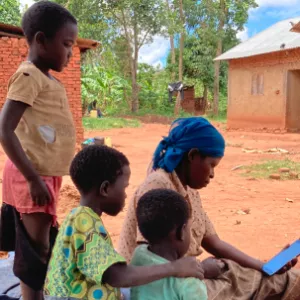‘Miracle seeds,’ informational curses? The risk of high expectations for new agricultural technologies
by Caroline Miehe, Leocardia Nabwire, Robert Sparrow, David Spielman, and Bjorn Van Campenhout OPEN ACCESS | CC-BY-4.0 Over the next few decades, farmers in sub-Saharan Africa will need to produce more food on less land and under increasingly difficult climatic conditions. The use of climate-smart agricultural practices and improved technologies such as higher-yielding and drought-tolerant crop varieties are thought to

‘Miracle seeds,’ informational curses? The risk of high expectations for new agricultural technologies
Over the next few decades, farmers in sub-Saharan Africa will need to produce more food on less land and under increasingly difficult climatic conditions. The use of climate-smart agricultural practices and improved technologies such as higher-yielding and drought-tolerant crop varieties are thought to be at least part of the solution. Unfortunately, concerns are rising that the use of improved inputs and technologies across the region now seems to be stagnating—or at least advancing at a slower pace than required.
Many farmers do not adopt new technologies and inputs for a variety of reasons. For example, the technology may not be suitable to their situation, its cost may be too high, return too low, or risk too high. Or there may be an institutional constraint at play: If the land is not owned but rented, there is little incentive to change practices. Or maybe informational constraints are the issue, and farmers simply do not have clear and adequate information on how to use the technology or input. Or maybe there is a problem with the quality of the technology or input—perhaps farmers cannot discern quality and are unable to distinguish between poor quality and good quality technologies.

